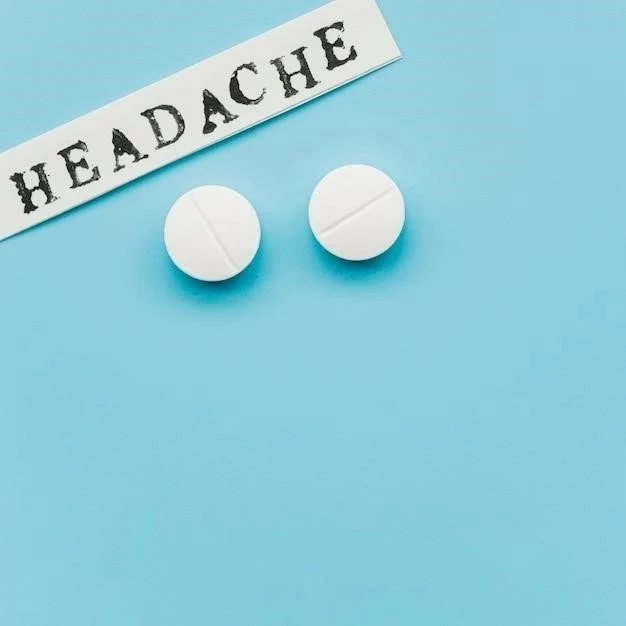Prednisone 10mg

Prednisone 10mg⁚ A Comprehensive Guide
This guide explores Prednisone 10mg, a corticosteroid used to treat various inflammatory conditions. Learn about its uses, dosage, potential side effects, precautions, and interactions to ensure safe and effective usage.
Understanding Prednisone 10mg
Prednisone 10mg is a glucocorticoid, a synthetic corticosteroid medication mimicking the effects of cortisol, a hormone naturally produced by the adrenal glands. It functions as an immunosuppressant and anti-inflammatory agent, effectively reducing inflammation and suppressing the immune system’s activity. This makes it valuable in treating a range of conditions, including allergic reactions, asthma, arthritis, skin disorders, and certain autoimmune diseases.
Prednisone 10mg works by binding to glucocorticoid receptors within cells, influencing gene expression and impacting various metabolic processes; It decreases inflammation by inhibiting the production of inflammatory mediators, reducing swelling, redness, itching, and pain. By suppressing the immune system, it helps control autoimmune responses and allergic reactions.
While effective, Prednisone 10mg should be used cautiously due to potential side effects. Understanding its mechanisms and effects is crucial for safe and informed usage.
Dosage and Administration of Prednisone 10mg
Prednisone 10mg dosage and administration are individualized based on the specific medical condition, its severity, and patient response. A physician determines the appropriate dosage, typically starting with a low dose and gradually adjusting as needed. It’s crucial to strictly adhere to the prescribed dosage and duration of treatment.
Prednisone 10mg tablets are usually taken orally, with food to minimize stomach upset. Swallowing the tablets whole is important; crushing or chewing them can alter drug release and increase side effect risks. The medication is usually administered once daily, though in some cases, a divided dose or alternate-day dosing may be recommended.
Never abruptly discontinue Prednisone 10mg without consulting your doctor. Sudden cessation can lead to withdrawal symptoms and worsen the underlying condition. Tapering off the dosage gradually under medical supervision is essential to avoid adverse effects.
Consistent use at the prescribed times is important for optimal therapeutic benefit. If a dose is missed, take it as soon as remembered unless it’s close to the next scheduled dose. Double dosing should be avoided. Consulting a healthcare professional for any dosage-related concerns is always recommended.
Common Side Effects of Prednisone 10mg
While Prednisone 10mg is beneficial, it can cause side effects. Common ones include increased appetite, weight gain, and difficulty sleeping (insomnia). Fluid retention, leading to swelling in the hands, ankles, or feet, can also occur. Some individuals experience mood changes, such as increased anxiety or irritability.
Gastrointestinal issues like heartburn, nausea, and vomiting are sometimes reported. Skin changes, including acne, thinning skin, and slowed wound healing, may also appear. Elevated blood sugar levels are a concern, particularly for individuals with diabetes.
These common side effects are often mild and temporary, subsiding as the body adjusts to the medication. However, if they persist or become bothersome, consult your doctor. They can offer advice or adjust the dosage to minimize these effects.
Remember, experiencing side effects doesn’t necessarily require stopping the medication. Open communication with your healthcare provider is crucial for managing these effects effectively and ensuring the treatment’s overall benefit outweighs any discomfort.
Serious Side Effects of Prednisone 10mg
While less frequent, serious side effects can occur with Prednisone 10mg, requiring immediate medical attention. These include severe allergic reactions manifested as skin rash, itching, hives, swelling of the face, tongue, or throat, and difficulty breathing.
Other serious side effects involve vision problems like blurred vision, eye pain, or seeing halos. Signs of infection, such as fever, chills, persistent sore throat, or cough, should be reported promptly. Bone pain, easy bruising or bleeding, and unexplained muscle weakness can indicate potential complications.
Mental or mood changes, including severe depression, mood swings, agitation, or confusion, warrant immediate medical evaluation. Symptoms like rapid weight gain, swelling in the extremities, or shortness of breath could signify fluid retention or heart problems.
If you experience any of these serious side effects, seek medical help immediately. Early intervention is crucial to prevent potentially life-threatening complications. Regular monitoring and open communication with your healthcare provider are essential for safe Prednisone 10mg usage.
Managing Side Effects of Prednisone 10mg
Managing Prednisone 10mg’s side effects often involves lifestyle adjustments and medical interventions. Taking the medication with food can minimize stomach upset. Regular exercise and a balanced diet can help manage weight gain and reduce the risk of osteoporosis.
Getting enough sleep and practicing relaxation techniques can alleviate insomnia and mood disturbances. Protecting the skin from sun exposure and using gentle skincare products can address skin thinning and acne. Monitoring blood sugar levels regularly is essential, especially for individuals with diabetes.
Your doctor may prescribe additional medications to manage specific side effects, like antacids for heartburn or potassium supplements for electrolyte imbalances. Communicating openly with your healthcare provider about any bothersome side effects is crucial. They can adjust the dosage, suggest alternative medications, or recommend other strategies to mitigate these effects.
Remember, managing side effects is a collaborative effort between you and your doctor; Active participation in your treatment plan can significantly improve your overall experience with Prednisone 10mg.
Prednisone 10mg and Drug Interactions
Prednisone 10mg can interact with other medications, potentially altering their effects or increasing the risk of side effects. It’s crucial to inform your doctor about all medications, including prescription drugs, over-the-counter medications, and herbal supplements you’re taking.
Interactions can occur with drugs like aspirin, nonsteroidal anti-inflammatory drugs (NSAIDs), blood thinners, diabetes medications, and certain antifungal medications. Concomitant use with some vaccines, especially live vaccines, should be avoided.
Prednisone 10mg can also affect the results of certain laboratory tests. Inform lab personnel about your Prednisone usage to ensure accurate interpretation of results. Your doctor may adjust dosages or monitor you closely when combining Prednisone 10mg with other medications.
Always consult your doctor or pharmacist before starting any new medications while taking Prednisone 10mg. Providing a complete medication list is essential for safe and effective medication management.

Prednisone 10mg and Specific Medical Conditions
Individuals with certain medical conditions require careful monitoring when using Prednisone 10mg. Those with diabetes should closely monitor their blood sugar levels, as Prednisone can elevate blood glucose. Patients with high blood pressure should also be vigilant, as the medication can exacerbate hypertension.
People with a history of infections, including tuberculosis or fungal infections, need careful observation, as Prednisone can suppress the immune system, increasing infection risk. Those with osteoporosis should discuss potential bone loss risks with their doctor.
Individuals with stomach ulcers or other gastrointestinal issues should be mindful of potential stomach irritation. Those with mental health conditions, like depression or anxiety, require close monitoring for mood changes. Always disclose your complete medical history to your doctor before starting Prednisone 10mg.
This allows for appropriate dosage adjustments, closer monitoring, and proactive management of potential complications related to pre-existing conditions.
Prednisone 10mg and Diabetes
Prednisone 10mg can elevate blood sugar levels, posing challenges for individuals with diabetes. It can increase insulin resistance, making it harder for the body to utilize glucose effectively. This can lead to hyperglycemia, requiring adjustments to diabetes management strategies.
Individuals with diabetes taking Prednisone 10mg should monitor their blood sugar levels more frequently. They may need to adjust their insulin or oral diabetes medication dosages as directed by their physician. Dietary modifications and increased physical activity can also help manage blood sugar levels.
Open communication with your doctor is crucial if you have diabetes and are prescribed Prednisone 10mg. They can provide guidance on adjusting your diabetes management plan and monitor for potential complications. Regular check-ups and blood sugar monitoring are essential for safe and effective management.
Careful attention to blood sugar control can minimize the impact of Prednisone 10mg on diabetes and prevent hyperglycemia-related complications.
Prednisone 10mg and Infections
Prednisone 10mg, by suppressing the immune system, can increase susceptibility to infections and mask their symptoms. This makes it crucial to be vigilant about potential infections while taking this medication. Avoid close contact with individuals known to have contagious illnesses.
Practice diligent hand hygiene and other infection prevention measures. Report any signs of infection, such as fever, chills, sore throat, cough, or unusual fatigue, to your doctor promptly. Early diagnosis and treatment are essential to prevent complications.
Inform your doctor about any recent infections or exposure to contagious illnesses before starting Prednisone 10mg. They may advise against its use or recommend closer monitoring. Live vaccines should generally be avoided while taking Prednisone due to the risk of developing the infection.
Maintaining open communication with your healthcare provider and taking proactive steps to prevent infections are crucial for safe Prednisone 10mg usage.
Prednisone 10mg and Allergic Reactions
While Prednisone 10mg is often used to treat allergic reactions, paradoxically, some individuals can experience allergic reactions to the medication itself. These reactions can range from mild to severe and require prompt medical attention.
Symptoms of an allergic reaction to Prednisone 10mg can include skin rash, hives, itching, swelling of the face, lips, tongue, or throat, difficulty breathing, and dizziness. If you experience any of these symptoms, seek immediate medical help.
Before starting Prednisone 10mg, inform your doctor about any known drug allergies. They may perform allergy testing or choose an alternative medication if necessary. Be aware that allergic reactions can occur even after taking Prednisone 10mg without prior issues.
Prompt recognition and treatment of allergic reactions are crucial to prevent serious complications. Carry any prescribed emergency medication, such as an epinephrine auto-injector, if your doctor has advised you to do so.
Prednisone 10mg and Pregnancy
Prednisone 10mg use during pregnancy requires careful consideration and should only be undertaken if the potential benefits outweigh the risks to the developing fetus. While Prednisone can cross the placenta, it’s generally considered low risk, especially in lower doses.
However, prolonged high-dose Prednisone use during pregnancy may increase the risk of certain complications, such as low birth weight or cleft palate. Infants born to mothers who have taken corticosteroids throughout pregnancy may also experience temporary adrenal insufficiency.
If you are pregnant or planning to become pregnant, discuss Prednisone 10mg use with your doctor. They can assess the risks and benefits and determine the appropriate course of action. Close monitoring of both mother and baby throughout pregnancy is essential.
Open communication and shared decision-making between you and your healthcare provider are crucial for managing any health conditions requiring Prednisone during pregnancy.
Prednisone 10mg and Breastfeeding
Prednisone 10mg passes into breast milk in small amounts, but it’s generally considered safe for breastfeeding infants. The amount of Prednisone that reaches the baby is typically low and unlikely to cause significant harm.
However, potential side effects in the infant, such as growth suppression or adrenal suppression, are theoretically possible, particularly with higher maternal doses or prolonged use. Close monitoring of the infant for any unusual symptoms is recommended.
If you are breastfeeding and considering taking Prednisone 10mg, discuss it with your doctor. They can assess the risks and benefits and help you make an informed decision. Alternative medications or adjustments to the breastfeeding schedule may be considered in certain situations.
Open communication with your healthcare provider is essential to ensure both your and your baby’s well-being while breastfeeding and taking Prednisone 10mg.
Prednisone 10mg and Children
Prednisone 10mg can be used in children, but careful monitoring is essential due to potential effects on growth and development. Prolonged use of corticosteroids in children can suppress growth, requiring regular monitoring of height and weight.
The dosage of Prednisone 10mg in children is carefully calculated based on their weight and the specific condition being treated. Close monitoring for side effects, including increased appetite, weight gain, mood changes, and susceptibility to infections, is important.
Parents and caregivers should communicate openly with the child’s doctor about any concerns regarding Prednisone 10mg use. Regular check-ups are essential to assess growth, monitor for side effects, and adjust the treatment plan as needed.
While Prednisone 10mg can be beneficial for various conditions in children, careful management and open communication with the healthcare provider are crucial to minimize potential risks and ensure optimal outcomes.
Prednisone 10mg and Older Adults
Older adults may be more susceptible to the side effects of Prednisone 10mg, requiring careful monitoring and dosage adjustments. They are at increased risk of developing osteoporosis, high blood pressure, and fluid retention with Prednisone use.
Close monitoring for side effects, including changes in mood, sleep disturbances, and gastrointestinal issues, is essential. Older adults should also be vigilant about potential infections, as Prednisone can weaken the immune system.
Starting with a lower dose and gradually increasing it as needed is often recommended for older adults. Regular check-ups and open communication with the healthcare provider are crucial to manage potential side effects and ensure safe Prednisone 10mg use.
Careful consideration of potential risks and benefits is important when prescribing Prednisone 10mg to older adults. Individualized treatment plans and close monitoring can help optimize outcomes and minimize adverse effects.

Long-Term Use of Prednisone 10mg
Long-term use of Prednisone 10mg, while sometimes necessary, carries an increased risk of side effects. These can include osteoporosis, increased susceptibility to infections, weight gain, elevated blood sugar levels, and cataracts. Regular monitoring and preventive measures are crucial.
Individuals on long-term Prednisone 10mg should have regular bone density scans to monitor for osteoporosis. They should also receive vaccinations as recommended by their doctor, while avoiding live vaccines. Dietary modifications and exercise can help manage weight gain and blood sugar levels.
Regular eye exams are important to detect cataracts early. Open communication with the healthcare provider is essential to discuss potential long-term side effects and implement strategies to minimize their impact. Regular check-ups and adherence to the prescribed treatment plan are vital.
While long-term Prednisone 10mg can effectively manage chronic conditions, careful monitoring and proactive management of potential side effects are crucial for maintaining overall health and well-being.
Precautions Before Taking Prednisone 10mg
Before starting Prednisone 10mg, inform your doctor about your complete medical history, including any allergies, infections, diabetes, high blood pressure, osteoporosis, or mental health conditions. This information helps assess potential risks and tailor the treatment plan accordingly.
Inform your doctor about all medications you are taking, including prescription drugs, over-the-counter medications, and herbal supplements, to avoid potential drug interactions. If you are pregnant, breastfeeding, or planning to become pregnant, discuss the risks and benefits of Prednisone 10mg with your doctor.
Understand the potential side effects of Prednisone 10mg and report any unusual symptoms to your doctor promptly. Do not abruptly stop taking Prednisone 10mg without consulting your doctor, as this can lead to withdrawal symptoms.
By taking these precautions and maintaining open communication with your healthcare provider, you can minimize potential risks and ensure safe and effective Prednisone 10mg usage.
Overdosing on Prednisone 10mg
Overdosing on Prednisone 10mg can have serious consequences, requiring immediate medical attention. Symptoms of an overdose can include severe nausea, vomiting, stomach pain, confusion, agitation, and irregular heartbeat. Seek immediate medical help if you suspect a Prednisone overdose.
Do not induce vomiting unless instructed to do so by a medical professional. Keep the medication out of reach of children and store it in a safe place. If you miss a dose, take it as soon as you remember, unless it’s close to the next scheduled dose. Do not double the dose to catch up.
Contact your doctor or pharmacist for guidance if you have any questions about Prednisone 10mg dosage or if you suspect an overdose. Keep the poison control center’s number readily available in case of emergencies.
Prompt action in case of a suspected overdose is crucial to prevent serious complications and ensure appropriate medical management.